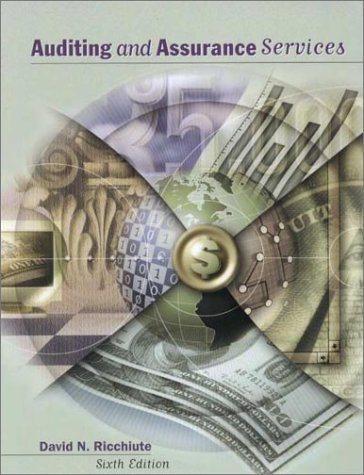Question
AgroYes Inc. (AY) is a Minneapolis-based company which manufactures several types of equipment for farmers. The company was founded in 1910 by Peter Smith. It
AgroYes Inc. (AY) is a Minneapolis-based company which manufactures several types of equipment for farmers. The company was founded in 1910 by Peter Smith. It is still private an entirely controlled by the Smith Family. Board members are all family members and senior positions occupied by heirs of Peter Smith. The company is a market leader and sales in 2013 reached more than $2 billion.
AY is a good employer, salaries and benefits are much higher than the ones offered in the region. Little efforts have been made to improve productivity, neither in the manufacturing plants, nor in the offices. Most managers are lifetime employees and are not known to put too much pressure on their staff. Internal processes are not too rigorous but the company never experienced any crises so, why change? When an issue surfaces, it is usually resolved between a few people gathering at the coffee machine.
Peter Smith III is the current CEO and manages AY pretty much the same way his ancestors did. He has a cell phone but does not use emails. He hardly touches a computer and makes decisions based on what he reads and above all on what he is told during meetings. He is close to retirement and secretly expects that his only son, Andrew Smith, who is currently Chief Financial Officer, will succeed him. The other candidate is one of his nephews who is now in charge of production.
The company's financial situation is healthy. Peter does not like debt and does not like to extend credit to his customers either. He and his son sometimes clash with Betty, the head of sales. She would like AY to offer more generous payment terms to her clients but it is not in the company culture. The "10 million" rule was established a long time ago and Peter does not even want to discuss it. In essence, all customers should pay cash a few days after being delivered their equipment. If they are not willing to do so, short-term credit is OK but no more than $10 million. When Betty tries to explain to the Smithes that they are losing business and should be more flexible, she is always reminded of the infamous "$10 million rule".
On September 5th, 2013, Peter arrived early in the office and, as usual, read a few newspapers while enjoying a cup of coffee. One article grabbed his attention. It was about the consequences of the severe drought which affected the Midwest. Farmers were complaining about the poor harvest and the huge shortfall in their revenues. The article hinted that a few local financial institutions in Minnesota were experiencing a spike in defaults on loans to farmers.
Slightly after lunch, his son Andrew, AY's CFO entered his office. He was very uncomfortable and had to present bad news to his father:
Number 1, AY's main bank had confirmed that one of AY's biggest dealers had just filed for bankruptcy and would not be able to pay any invoices to AY. Andrew had calculated that the
Sylvain Bouteille - 2014
total amount due by the dealer was in excess of $25 million. His father was furious as obviously the $10 million rule had not been respected. Andrew explained that the exposure was under $10 million most of the time but higher at the end of the summer as the business was seasonal: farmers needed more AY's equipment before the harvest and were able to repay after harvesting their crops. The pattern was the same every year so Andrew had concluded that by respecting the $10 million rule most of the time, his father's instructions were respected.
Andrew had started with the "good news". He had even worse news to communicate to his father. Another dealer, Agri Minnesota, had also defaulted and AY's aggregated exposure was close to $50 million. Over time and under pressure from Betty and competitors, Andrew had agreed to lease equipment to farmers rather than selling them. Andrew was not too sure of the technical features of these "complex financial agreements" and had relied on the expertise of a local consultant. He had been told that leases were better than sales as, in case of default of a client, AY could repossess the equipment and sell it. The consultant had figured out that the resale value of the equipment was historically very high and that, as a consequence, the exposure to lease client was low. Even though the accumulated amount of leases to Agri Minnesota was high, the real exposure was always considered to be below $10 million. However, with so many farmers in trouble and a new generation of machines just released, the same consultant had just informed Andrew that the resale value was close to zero.
Questions:
-
- What went wrong at AY? Think of governance, compliance and financial expertise?
-
- What do you recommend to reduce the possibility that similar issues occur again?
Step by Step Solution
There are 3 Steps involved in it
Step: 1

Get Instant Access to Expert-Tailored Solutions
See step-by-step solutions with expert insights and AI powered tools for academic success
Step: 2

Step: 3

Ace Your Homework with AI
Get the answers you need in no time with our AI-driven, step-by-step assistance
Get Started


